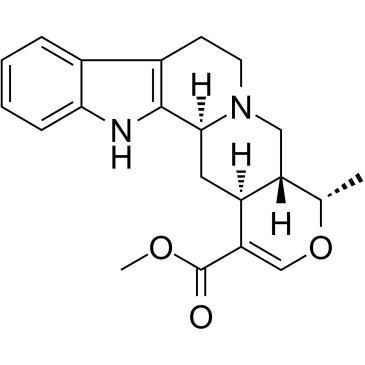In vitro propagation of Rauwolfia serpentina using liquid medium, assessment of genetic fidelity of micropropagated plants, and simultaneous quantitation of reserpine, ajmaline, and ajmalicine.
M K Goel, S Mehrotra, A K Kukreja, K Shanker, S P S Khanuja
Index: Methods Mol. Biol. 547 , 17-33, (2009)
Full Text: HTML
Abstract
Rauwolfia serpentina holds an important position in the pharmaceutical world because of its immense anti-hypertensive properties resulting from the presence of reserpine in the oleoresin fraction of the roots. Poor seed viability, low seed germination rate, and enormous genetic variability are the major constraints for the commercial cultivation of R. serpentina through conventional mode. The present optimized protocol offers an impeccable end to end method from the establishment of aseptic cultures to in-vitro plantlet production employing semisolid as well liquid nutrient culture medium and assessment of their genetic fidelity using polymerase chain reaction based rapid amplification of polymorphic DNA analysis. In vitro shoots multiplied on Murashige and Skoog basal liquid nutrients supplemented with benzo[a]pyrene (1.0 mg/L) and NAA (0.1 mg/L) and in-vitro rhizogenesis was observed in modified MS basal nutrient containing NAA (1.0 mg/L) and 2% sucrose. In-vitro raised plants exhibited 90-95% survival under glass house/field condition and 85% similarity in the plants regenerated through this protocol. Field established plants were harvested and extraction of indole alkaloid particularly reserpine, ajmaline and ajmalicine and their simultaneous quantitation was performed using monolithic reverse phase high-performance liquid chromatography (HPLC).
Related Compounds
| Structure | Name/CAS No. | Molecular Formula | Articles |
|---|---|---|---|
 |
Ajmalicine
CAS:483-04-5 |
C21H24N2O3 |
|
Determination of terpenoid indole alkaloids in hairy roots o...
2015-01-01 [Phytochem. Anal. 26 , 331-8, (2015)] |
|
Synergistic and cytotoxic action of indole alkaloids produce...
2013-03-01 [Pharm. Biol. 51(3) , 304-10, (2013)] |
|
A differential response to chemical elicitors in Catharanthu...
2009-04-01 [Biotechnol. Lett. 31(4) , 591-5, (2009)] |
|
Molecular modelling of human CYP2D6 and molecular docking of...
2008-05-01 [Int. J. Biol. Macromol. 42(4) , 362-71, (2008)] |
|
Construction and expression of a dual vector for chemo-enzym...
2010-05-01 [Nat. Prod. Res. 24(8) , 759-66, (2010)] |